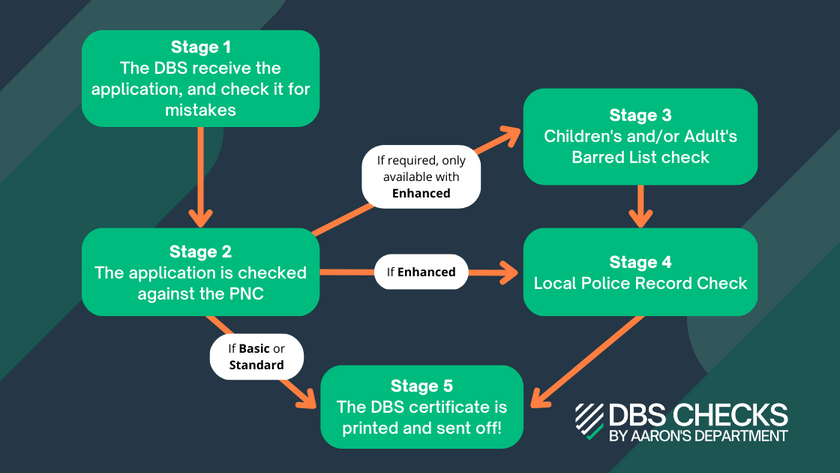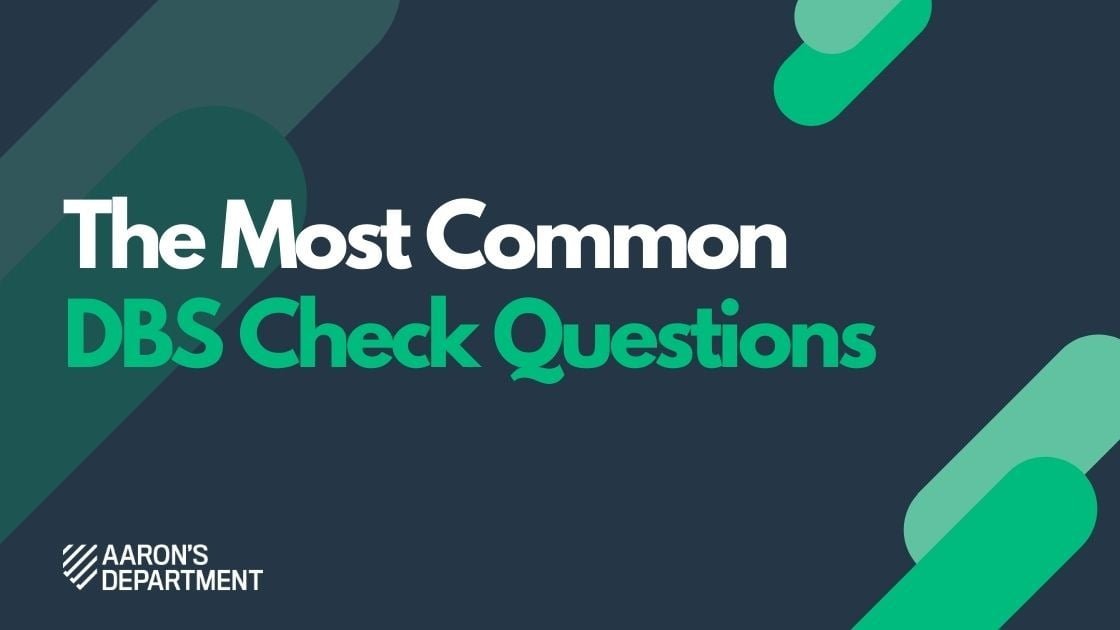The Disclosure and Barring Service (DBS) checks took over from the old CRB checks when the CRB (Criminal Records Bureau) and ISA (Independent Safeguarding Authority) merged in 2012.
Since then, we’ve got a lot of questions.
What is a DBS certificate? What do they show? Well, if you were wondering the same thing, you’re in luck!
Here are some of the most common DBS Check questions we get asked… let’s take a look.
What is a DBS Certificate?
A DBS check is a survey of a person’s criminal record and is used to help organisations in recruitment decisions.
Depending on the type of the DBS check requested, it can include information from the Police National Computer database, if the applicant is on either the Children’s or Adult’s barred list, as well as any information the local police decide is relevant to include.
How Long Does a DBS Check Take?
Each DBS Check usually takes a different amount of time, depending on the individual’s information.
The fastest completed and returned DBS check we have had so far this year as of April is 49 Minutes. We’re more than confident that by the end of the year we will have had many, many more DBS checks returned in well under a day.
This is due to each stage of the application (depending on the applicant) taking a different amount of time to check. The flowchart below shows the different stages in order (it’s not as simple as “1 2 3 4 5”!).


Stage 1 – DBS Application Received
The DBS will check for any errors. But if you’ve used our service, they shouldn’t find any! Any error will result in either rejection, or further information being requested.
Stage 2 – Police National Computer (PNC) Search
Key information is compared against the PNC computer for any matches.
If a Basic DBS Check has been requested, it will skip to Stage 5 after this has been completed.
Stage 3 – Children and Adults’ Barred Lists Searched (Enhanced DBS Checks Only)
If a Children’s and/or Adults Barred List check is needed for the role, then the Barred List database will be checked for any information that may prevent the individual from engaging in regulated/unsupervised activity.
Since a Standard DBS check doesn’t have this, it goes straight to Stage 5.
Stage 4 – Local Police Record Check (Enhanced DBS Check Only)
Here’s the troublemaker! An Enhanced DBS Check is sent to the local police forces for an additional check, to see if there is any relevant information that should be included in the applicant’s report.
Stage 5 – The Application is Completed
Once checked and completed, the applicant’s DBS certificate is ready for printing. Once done (in highly secure conditions), it is posted to the applicant, not the employer.
The applicant can then reveal the information contained on the DBS certificate to the employer. At Aaron’s Department, as a registered body, we are able to give employers a summary of the DBS Check at this stage, so you know straight away if it came back clear. This allows you to get your staff into work quicker.
However, if the check does not come back clear, we will advise you to request to see the applicant’s DBS form.
What Does a DBS Check Show?
A DBS Check Certificate contains personal information of the applicant, including any criminal offence history disclosed on the person (if any exists).
Depending on the level of DBS, it will display slightly different things.
What Does a Basic DBS Certificate Show?
A Basic DBS Certificate contains all unspent convictions, final warnings, and reprimands from the PNC.
What Does a Standard DBS Certificate Show?
A Standard DBS Certificate contains all spent and unspent convictions, final warnings, and reprimands from the PNC of the applicant.
What Does an Enhanced DBS Certificate Show?
An Enhanced DBS Certificate contains all spent and unspent convictions, final warnings, and reprimands from the PNC; it also includes any information that the local police considers relevant for disclosure. If selected, it will also include the result of a check against one or both barred lists.
What Does an Enhanced DBS Certificate with a Barred List Check Show?
The Certificate will contain the result of a check against the Children’s and or the Adult’s barred lists. It will also include all spent and unspent convictions, final warnings, and reprimands from the PNC, and any information that the local police considers relevant for disclosure.
What Documents Do I Need For a DBS Check?
Depending on where the applicant is from and which route the check is being done by, different documents will be needed.
You can read about the different routes which can be taken in our Application Form Guide.
Below is a list of some of the most commonly used documents when submitting a DBS application:
- Passport.
- Biometric residence permit.
- Current photocard driving licence (full or provisional).
- Birth certificate, issued within 12 months of birth.
- Adoption certificate.
- Marriage or civil partnership certificate.
- Immigration document, visa or work permit.
- Mortgage statement.
- Bank or building society statement.
- P45 or P60 statement.
How Much is a DBS Check?
| Disclosure Type | DBS Application Fee (No VAT) | Admin Fee (+VAT) | Total (+Admin Fee VAT) |
|---|---|---|---|
| Basic DBS Check | £18 | £5.45 | £23.45 |
| Standard DBS Check | £18 | £8.75 | £26.75 |
| Standard DBS Check (Volunteer) | £0 | £8.75 | £8.75 |
| Enhanced DBS Check | £38 | £10.95 | £48.95 |
| Enhanced DBS Check (Volunteer) | £0 | £10.95 | £10.95 |
| Adult First Check | £6 | £5.45 | £11.45 |
Visit our Pricing Page to find out more!
DBS Check Questions – Summary
So there some of our most common questions we get. If you have any other questions about DBS Checks, you could find the answer on our help and advice page.
To get in touch with Aaron’s Department regarding DBS Checks, feel free to give one of our experts a call on 0113 877 0171, or email contact@aaronsdepartment.com
